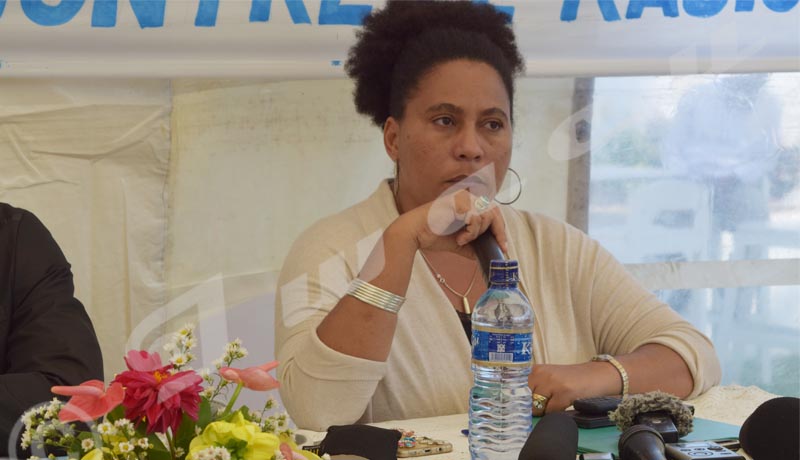In a press briefing held on August 14th, the Association of mulattoes in the Great Lakes Region says mulattoes in Burundi face social discrimination in their everyday life.

Liliane Zanone, a Burundian mulatto who experienced social discrimination
“Mulattoes have always been in search of their African roots with a desire to reunite with their families of origins,” says Issa Niyongere, Chairman of the Association of mulattoes in the Great Lakes Region (AMEGL).
They are neither legitimate nor recognized by any country from which their parents are nationals, he adds.
For Mr. Niyongere, Burundian mulattoes are discriminated for their skin color especially in education. “Many of them could not further their studies because they were discriminated at school,” he says.
He says the Constitution of Burundi recognizes mulattoes but no sensitization has so far been conducted for people to understand that they exist in Burundi.
Mr. Niyongere says mulattoes are sometimes considered as Europeans in Burundi whereas Europeans say they are Burundians.
“We urge Burundians to stop discriminating us. We should have the same rights as other Burundians,” says Mr. Niyongere
For him, mulattoes should have the right to choose their citizenship. “We need the rights to health, education and whatever right given to other citizens,” he adds.
Liliane Zanone, a Burundian mulatto born from a Burundian mother and Italian father says many Burundians consider mulattoes as abnormal people without future.
“At school, mulattoes are sometimes discriminated and tortured by both their classmates and teachers,” she says adding that people call them prostitutes and errant people.
Mrs. Zanone says mulatto children pay for the mistakes made by their parents.
She says she gave birth to mulatto children but her husband and his family hardly accepted those children because of their different skin colors.
“It is true that mulattoes encounter many problems in Burundi,” says Godelive Ndayishimiye, Advisor to the Burundian Ministry of Human Rights.
Sometimes their rights to education, citizenship, parenthood and health are not guaranteed, she adds.
She says human rights associations often ignore mulattoes. They do not remember that their rights need to be protected like other Burundians.
“The government of Burundi is aware of the problems encountered by mulattoes,” says Mrs. Ndayishimiye adding that they should not worry about their rights.
She calls on the mulatto community to always report to the Ministry of Human Rights any case of human rights violation.
Mulattoes are people born from one white parent and one black parent. Their exact number in Burundi is not yet known.
The press briefing was organized to launch a campaign aimed at sensitizing people to problems encountered by Burundian and European mulattoes.



















 IWACU Open Data
IWACU Open Data

